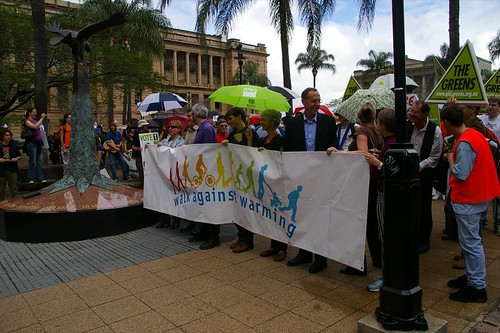Monday September 10 2007
From Guardian (UK)
Rationing project tests government plans to make pollution personal
Plans for the world's first personal carbon trading scheme, in which people buy and sell their rights to produce pollution, are unveiled today.
The Royal Society for the Encouragement of Arts, Manufactures & Commerce (RSA) is piloting a project later this year to test whether personal carbon trading could work on a large scale.
The idea, also called carbon rationing, is being considered by the government as a radical way to curb emissions of greenhouse gases such as carbon dioxide from households and consumers. Matt Prescott, who runs the RSA project, said: "Personal carbon trading is a way to bridge the gap between individual and collective action. It would be a way for the government to give people a sense of purpose in their efforts to reduce their emissions."
Under the initiative, due to start in November, participants will enter details of their energy use into a computer system, which already tracks the emissions of 5,000 RSA volunteers. Each person will be allocated a cap on their carbon dioxide use, and will be forced to buy credits from others if they exceed it.
Within a year, the RSA hopes to link their computer system to the billing procedures of gas and electricity companies, so the energy use of volunteers can be tracked automatically. They are also talking to oil companies about obtaining details of fuel purchases. The society hopes to have tens of thousands of people trading carbon credits for cash within three years.
Officials in the environment department, Defra, are giving carbon rationing serious thought. The RSA project was launched last year by the former environment secretary, David Miliband, who talked of people carrying carbon credit cards to be swiped when they bought fuel or flights. Today's report says the government could introduce compulsory carbon trading by 2013, using the climate change bill to change the law.
Read the article.





1 comment:
See a follow up article on this at http://www.guardian.co.uk/environment/2007/sep/20/carbonfootprints.
Post a Comment